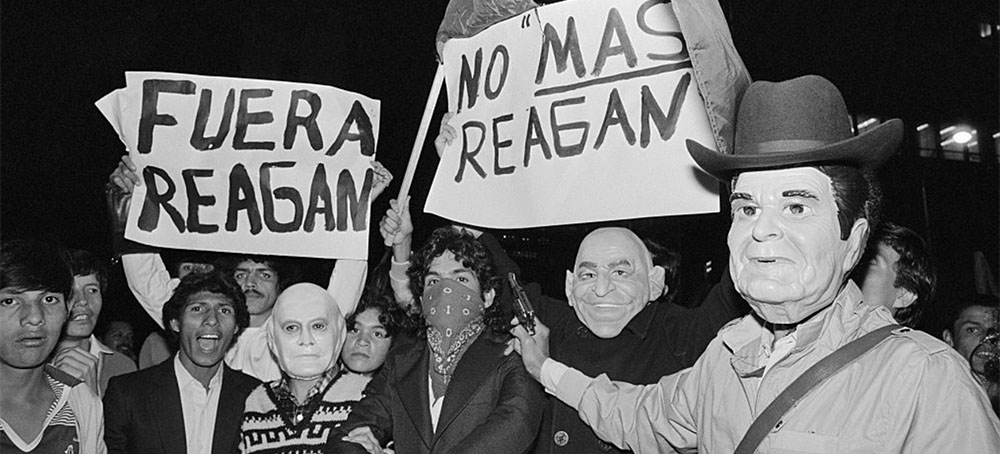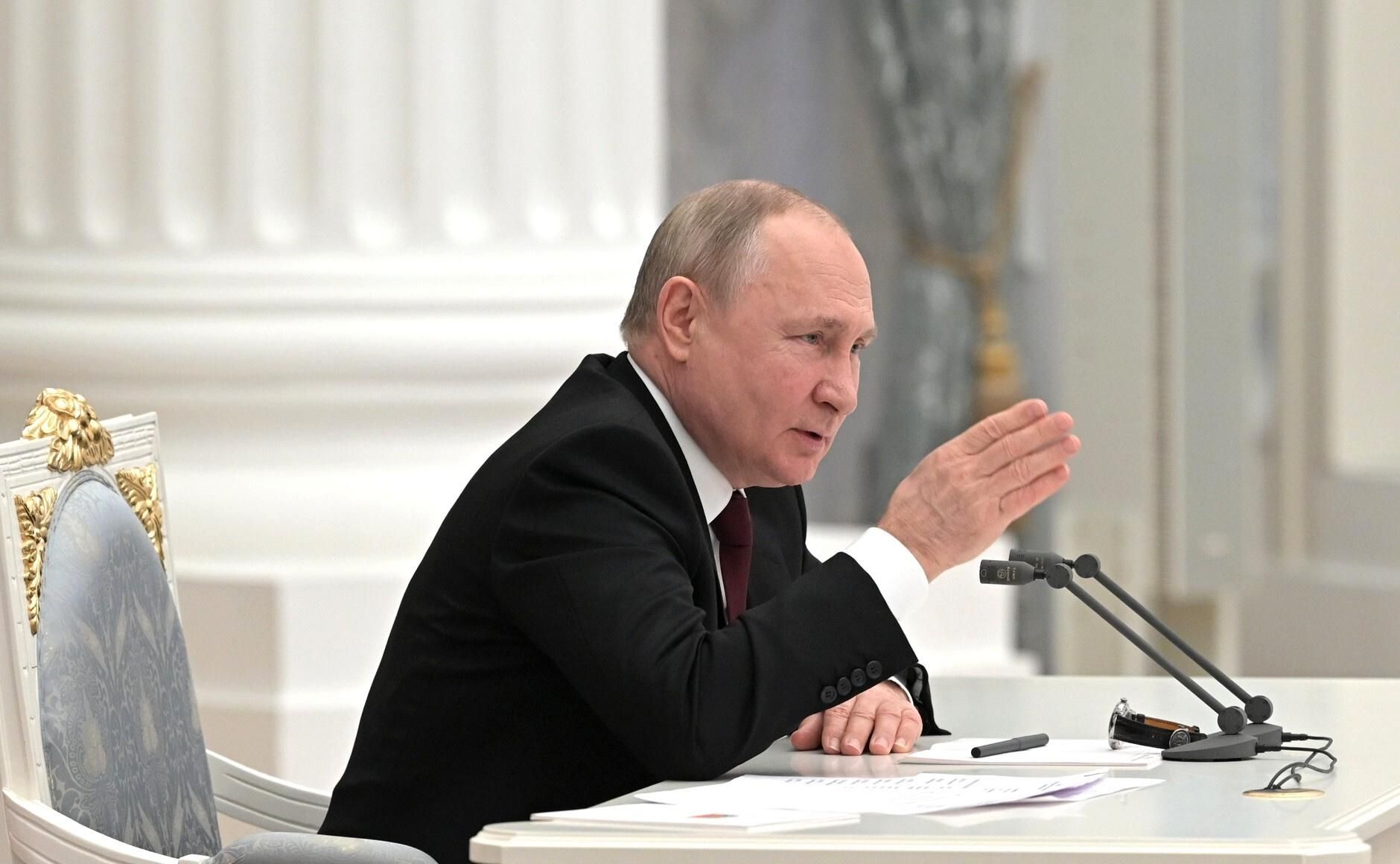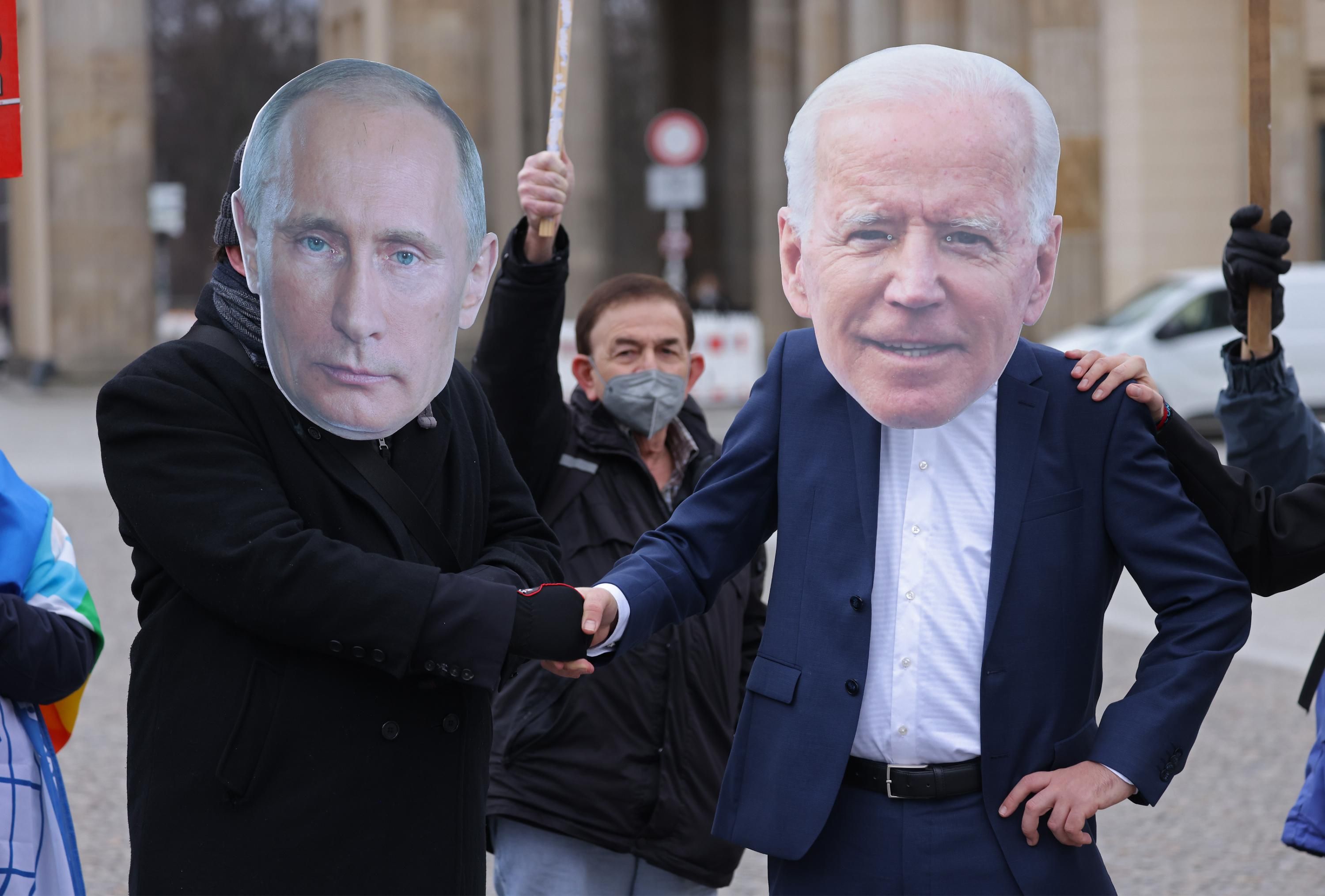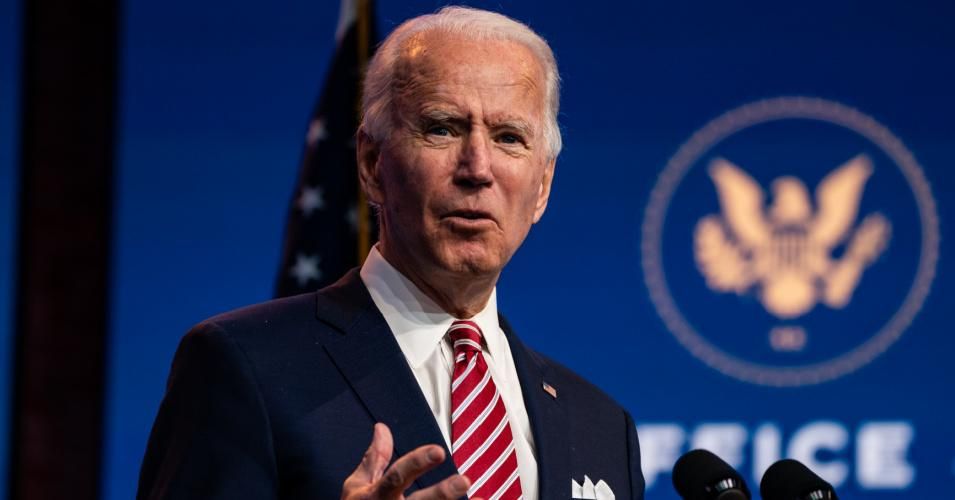Live on the homepage now!
Reader Supported News
Following the Vietnam War, global progressive movements sought to refashion the world in the interests of the majority. The failure of this project, and the subsequent triumph of liberal interventionism, explains the arrogance of the US foreign policy elite.
Such confidence — in both the durability of the American system and its universal appeal — is, of course, essential. Without it, how can the United States courageously defend what secretary of state Antony Blinken has called “the basic principles that sustain [global] peace and security”?
Undoubtably, the prospect of Russian military forces in Kyiv is unthinkable. However, one need not believe that the world should simply acquiesce to Russian demands to be startled by the hubris of American diplomats running to the ramparts of “freedom” and “national sovereignty” so swiftly and with such self-assurance.
Given the disastrous course of the United States’ “war on terror” and its attendant neocolonial projects in Iraq and Afghanistan, how is it that the US government can so confidently proclaim its right and ability to shape the world? Didn’t American planes just leave Kabul in disgrace mere months ago? Did this not mandate some period of reflection — one that might, perhaps, recommend a slightly humbler approach to the crisis in Eastern Europe? These are, as a European war once again threatens the world, important questions.
“Lessons of Vietnam”
To answer them one needs to pull back the camera, move away from Eastern Europe, past the ignominious withdrawal from Afghanistan, before the destruction of Iraq, before even the first Gulf War, and refocus instead on that infamous, helicopter-topped roof in Saigon and the era surrounding it. For, unlike in recent decades, the disastrous US war in Vietnam was something the world, and many in the American public, were unwilling to forget without a reckoning.
Indeed, for a time, the “lessons” of Vietnam appeared to provide opportunities for progressive forces to dismantle, or at least trim down, the US national security state and undermine the assumptions of American exceptionalism that undergirded it. Even more significantly, it seemed to many in the Global South that America’s sins in Indochina might allow even more far-reaching reforms, fundamentally readjusting a global economic system structured to keep much of the “Third World” in poverty.
Given that no such era of accounting has truly followed the wars in Iraq and Afghanistan, this earlier period, running roughly from the late 1960s to the early 1980s, looks even more remarkable now. Understanding why it came to an end, and in what way, is critical to understanding the present.
That the US war in Vietnam was a disaster was apparent long before that final helicopter lifted off in 1975. Some were so confident in catastrophe that they projected it decades beforehand. Graham Greene’s The Quiet American, for example, was already predicting a handover of the imperial torch from France to the United States, and American failure, in 1955.
Meanwhile, if one of the war’s key architects — Secretary of Defense Robert McNamara — is to be believed, even those who launched the Vietnam “surge” in 1964 (to borrow the contemporary term) felt deep down that it was doomed. Public optimism and private desperation were the order of the day in Lyndon Johnson’s White House.
Beyond these early confrontations with fate, by early 1968 it had become clear to most Americans that the war in Vietnam was a mistake — one, if not doomed to outright failure, was certainly set for some unhappy conclusion. Neither candidate in the 1968 presidential election campaigned on a pledge of victory in Vietnam: both Richard M. Nixon and Hubert Humphrey promised vague forms of peace — “with honor” as Nixon put it. Each was clearly offering something less than the “flag planted on Mount Suribachi” surrender to which Americans were accustomed. Walter Cronkite famously declared the war a “stalemate” in February — by which point near thirty thousand Americans and hundreds of thousands of Vietnamese lives had been lost.
There was also a clear perception by the political class of what the war had cost the United States abroad: nothing other than the very credibility which, in pursuing conflict in Indochina, it had sought to preserve. Candidate Nixon had summed up the situation in a 1967 speech: “Twenty years ago . . . we were respected throughout the world. Today, hardly a day goes by when our flag is not spit upon, a library burned, an embassy stoned.”
Nixon thus entered office a card-carrying member of the “lessons of Vietnam” club. The war had to continue, he believed, for an immediate, ugly withdrawal would be bad for the United States and — more importantly — for the new president’s chances at reelection.
This, however, didn’t mean that policy couldn’t be adjusted to avoid any repeats. Hence the Nixon Doctrine, a 1969 announcement that the global order outside Europe and Japan would no longer be a direct American responsibility. The United States might bankroll those willing to fight communism and other threats, but would never again commit its own troops.
The End of American Hegemony?
Dumped along with US military intervention was an earlier American commitment to modernization and development. Such programs, like John F. Kennedy’s Alliance for Progress in Latin America, were intended to bring US cash and expertise to bear on slow economic growth rates in the decolonizing world. Hardly altruistic — battling the Soviet Union in the Cold War seemed to require the US to find and “modernize” clients in the Global South — development goals and military intervention had merged into a neocolonial nightmare in South Vietnam, not to be repeated.
To many in the Global South, however, the idea that the United States had ever been doing more than advancing its own interests was somewhat ridiculous. Policymakers, intellectuals, activists, and others from across Latin America, Africa, and Asia had been articulating such a critique for decades. Vietnam merely revealed what they had already been saying: the US-led “free world” was no more than European imperialism in another form.
Key to this was “dependency theory,” an analysis of global economic patterns that originated in the thought of two economists, the Argentine Raul Prebisch and the West German Hans Singer. Though it takes many forms, dependency theory, at root, points out that trade between industrial and nonindustrial economies is unfair over the long term. While the price of finished industrial goods remains robust, the value of commodities or raw materials — the staple product of the nonindustrial nations of the Global South — inevitably declines.
Thus, US-backed international trade institutions, which operated on the assumption that all states trade on fundamentally equal terms, were hiding the deep imbalance between Global North and South, one deliberately cultivated by imperial systems over the previous four centuries. This, combined with the overwhelming dominance of US and European capital, revealed the US-led international economic system as one that, far from offering membership on equal terms, was perpetuating existing hierarchies of wealth and power.
This critique, advanced with more force each year in the United Nations General Assembly, landed at the precise moment that the United States appeared to be unravelling under the pressures of Vietnam, conservative revanchism over the results of the Civil Rights Movement, and revelations of presidential malfeasance. Despite their promises to learn the lessons of Vietnam, Nixon and Henry Kissinger continued the war, further wrenching the nation.
As it continued, so did the blows to Americans’ confidence in their system, their government, and their nation’s role in the world. Out came the “Pentagon Papers,” which revealed in plain text that American leaders from the president on down had been lying about Vietnam since the mid-1950s. Every assertion that the war was almost over, that South Vietnam was almost ready to stand on its own feet, was contrary to the evidence on the ground, and everyone in the executive branch knew it. The Watergate scandal merely confirmed the depths to which American politicians were willing to sink to maintain power and influence.
Suddenly it seemed that the critics had traction. Congress soon wrestled back some of the power to make war through the 1973 War Powers Act. The Church and Pike committees explored and revealed the misdeeds of American intelligence services. In New York, an increasingly anti-American United Nations General Assembly passed resolution after resolution condemning the American-led world order. This culminated in 1974 with the Declaration for the Establishment of a New International Economic Order, a plan for a global system of developmental capitalism based in a recognition of the sovereignty of nations in the Global South.
The Right in Resurgence
“We are a minority,” lamented future UN ambassador and senator Daniel Patrick Moynihan in 1975. “We are outvoted.” The success of the 1973 OPEC oil embargo against the United States, and the possibility of Third World states organizing similar commodity cartels, gave such proposals a hint of real teeth. It was, for a time, dangerous to speak incautiously before a global audience about the universal appeal of American institutions.
Such was the moment, in fact, that in the 1976 presidential election, both major party candidates — Republican Gerald Ford and Democrat Jimmy Carter — ran on foreign policies that called, in varying degrees, for restraint, absorbing the lessons of Vietnam and even acknowledging the Global South’s critique of world capitalism.
Carter especially wanted to see the United States make efforts to accommodate its critics in the UN; perhaps, given what had happened in Southeast Asia, it was time for the United States to adjust its approach to international affairs, to take criticism from the outside seriously. Shockingly enough, it was Carter who won, promptly appointing Andrew Young, the Civil Rights Movement veteran, UN ambassador while seriously exploring a global commodity agreement, the Common Fund, to stabilize the terms of world trade.
Yet just as quickly, the moment passed. The national security state endured. American exceptionalism revived. By the end of his term, Carter himself rediscovered military intervention, committing to covert action in Africa and Afghanistan. Essential to this process was a successful campaign by the US right to vilify the nation’s critics in the Global South as something akin to the “undeserving poor” — a vast region of hostile, illegitimate, and illiberal regimes looking to shake down the developed world.
Beginning with Moynihan’s time as UN ambassador — “giving them hell at the UN,” as Time magazine called it — and continuing after Ronald Reagan’s election in 1980, Americans recommitted themselves to exceptionalism. The Soviet Union, UN critics, the domestic left, and anti-internationalist right — anyone who attempted to critique the United States — revealed themselves as cowards or crooks — the “blame America first” crowd, as UN ambassador Jeane Kirkpatrick labeled them in 1984.
By this point, US policymakers and international financial institution bureaucrats were once again comfortable speaking of the universal applicability of US models — encouraging the Global South to pick itself up by its bootstraps, cut government spending, and open itself to outside trade and capital. Such “structural adjustment” programs — combined with falling commodity prices — blunted the radical edge of the Third World movement in the United Nations.
When communism collapsed in Eastern Europe and the Soviet Union later that decade, there was nobody left, at home or abroad, to mount any serious challenge, or indeed even question the new neoliberal economic orthodoxy that swept the world.
Few too were left to question the eastward expansion of NATO during the 1990s. It is the victory of the right wing of America’s foreign policy establishment that explains its dogmatic support for liberal interventionism. Ironically, the United States and Russia now agree on much more than they ever did during the Cold War. Neither questions the prevailing neoliberal order and its distribution of wealth. Russian influence over Ukraine, something taken for granted in the twentieth century, is the new sticking point. It’s not only Russian history that provides the answer as to why.
Follow us on facebook and twitter!
PO Box 2043 / Citrus Heights, CA 95611




























